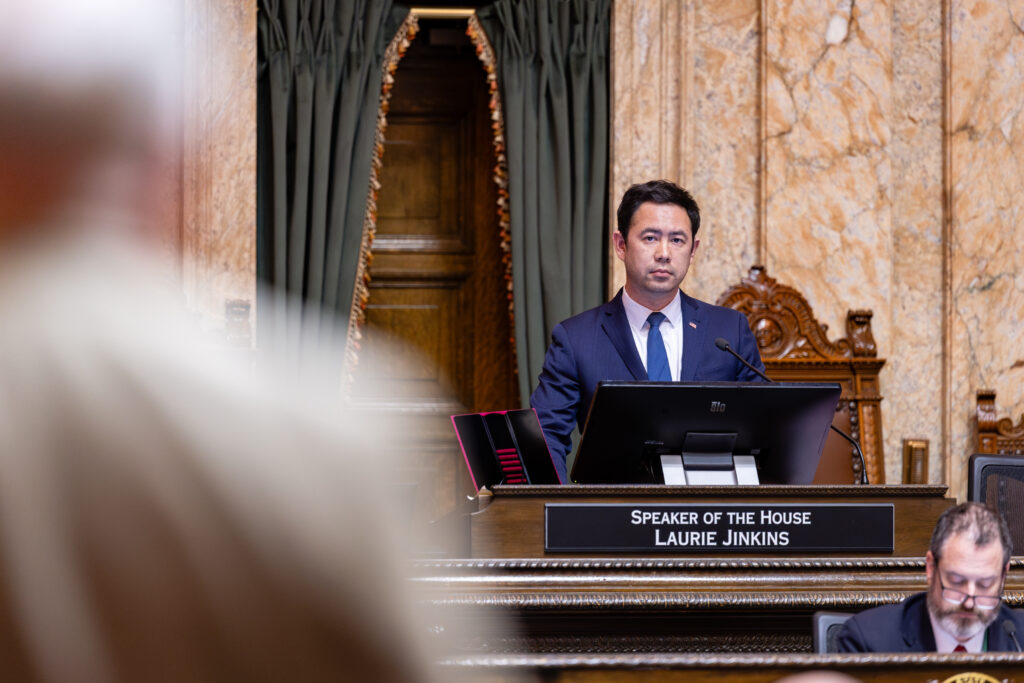Our schools are facing a behavioral health crisis. Recent findings paint a stark picture of the challenges our kids are facing. Nearly 60% of Washington teens experience anxiety or depression. Roughly 1 in 5 of Washington adolescents need clinical care for mental health issues.
Every community in our state – urban and rural, east and west – is seeing students struggle with anxiety and depression. This crisis affects academic success, family stability, and the overall well-being of our young people.

A Shortage of Behavioral Health Professionals
At the same time, Washington is experiencing a severe shortage of behavioral health providers. Statewide, there is only one behavioral health provider for every 360 people – nowhere close to meeting the growing demand. This workforce gap means that even when teens reach out for help, too often there isn’t a counselor, therapist, or social worker available. The prevalence of depression and anxiety continues to climb, yet our provider pipeline isn’t keeping up.
One major hurdle for expanding the behavioral health workforce is finding opportunities to fulfill training requirements. New counselors and therapists must complete thousands of supervised clinical hours before they can be fully licensed. Finding these supervised hours can be challenging – limited internship placements mean many aspiring providers struggle to get the experience they need.
A Win-Win Solution: House Bill 1259
Fortunately, we have a critical opportunity to address both the student mental health crisis and the workforce shortage. I introduced House Bill 1259 to tackle this problem with a simple idea: allow students training to work in behavioral health to complete their supervised clinical hours by working in our K-12 schools. This solution is a win-win. Our students would gain greater access to mental health support at school, and our future behavioral health providers would get hands-on experiences to inspire them to continue serving our children.
House Bill 1259 directs Washington’s higher education and training programs to collaborate with K-12 schools on clear standards so that graduate students or associate-level counselors can serve in elementary and secondary schools while under supervision. The concept is straightforward: our students need help, and our future providers need training hours – let’s connect the two needs.
However, even as we move to improve access, we must also make sure that those working with our kids are well-qualified and properly supervised. That’s why I’m advancing this legislation carefully and deliberately, working in close consultation with educators, school counselors, mental health professionals, and parents. Together, we are crafting a plan that balances improving access with maintaining high standards of care. In practical terms, HB 1259 will set clear supervision requirements so that younger providers are always guided by seasoned professionals. Above all, student safety and well-being remain my top priorities.
This legislation has earned broad support from educators and health advocates. Organizations like the National Alliance on Mental Illness (NAMI Washington) have thrown their support behind the bill, recognizing that innovative strategies are needed to improve youth mental health care.
Pushing for Progress in Olympia
As your state representative, I am making House Bill 1259 one of my top priorities. I serve as Vice Chair of the Education Committee and a member of the Health Care & Wellness Committee. Earlier this year, I brought HB 1259 to a public hearing in the Postsecondary Education & Workforce Committee. The testimony and feedback were encouraging, and it’s clear that families and professionals across Washington want to see action on our youth mental health crisis.

So where is the bill now? After its hearing in January, HB 1259 unfortunately did not advance out of committee before the end of the 2025 session. But I want you to know I have not given up.
Every day, I carry the stories of parents, students, and teachers who have shared their struggles and hopes regarding mental health. Those stories fuel my determination to push for solutions like HB 1259. This effort is about caring for our students and also thinking outside the box to strengthen our behavioral health workforce for the long term. It’s about meeting this moment with both ingenuity and compassion.
I look forward to hearing from you as we prepare for the 2026 legislative session and continue fighting for our youth’s well-being. Together, we can ensure that every child has the support they need and that those called to serve in behavioral health can step into their careers to meet our communities’ needs.
Always at Your Service,

Clyde
